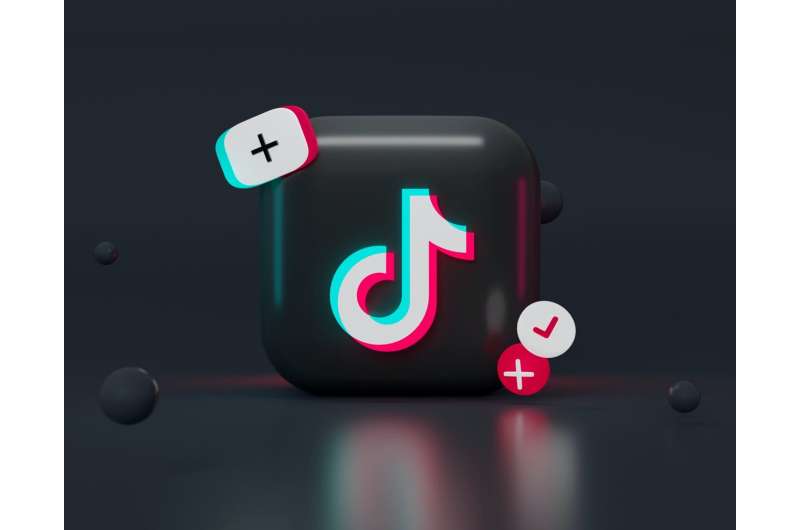This article has been reviewed according to Science X's editorial process and policies. Editors have highlighted the following attributes while ensuring the content's credibility:
fact-checked
trusted source
proofread
Why is TikTok under attack from the US government?

The popular social media app TikTok is facing increased scrutiny as some government officials have declared it a security risk, with the Biden administration last week giving federal agencies 30 days to ensure that TikTok is not on any federal devices or systems.
Scott White, an associate professor in the College of Professional Studies and the director of the Cybersecurity Program and Cyber Academy at George Washington University, explained in an interview with GW Today why some think TikTok poses a security risk and whether those fears are overblown.
White, who previously worked as an officer with the Canadian Forces Intelligence Command, said while there are some reasons to be concerned about the app, there's also some political theater at play.
TikTok, which is owned by a Chinese company called ByteDance, does collect a lot of data on its users, White said. In addition to personally identifiable information (PII), such as names and birthdates, the app also collects biometric data.
"I think the concern for the government is they do collect biometric identifiers. So, the biometric identifiers that can be captured by TikTok are your voice pattern and your eyes scan," White said. "Unlike other kinds of information that can change, once I capture your voice or capture your retina scan, that can't be changed. So that kind of biometric identifier will stay connected to the individual over time."
White said TikTok is not the only app that collects this type of data but the concern some government officials are raising is that its ownership is based in China. In China, White said, there are laws for privacy and data collection that ultimately place the rights of the state above the individual.
"The National Intelligence Law, article seven, for example, requires all organizations assist and cooperate with national intelligence efforts," White said. "Technological companies must comply with the national intelligence work being done by the intelligence services. They must. So that's the fear. That all this information, whether it's PII or biometric information, can theoretically be given to the intelligence service of China."
He said the argument from government officials wanting to ban TikTok is that the app is an intelligence-gathering service of the Chinese government.
"Every single company that does business with China could theoretically have their information shared with the national security service of China," White said.
While those factors are legitimate concerns, White said, it's important to note many other apps collect similar data on their users.
"Facebook, Instagram, Tinder, Grinder, Uber—they all collect PII information on their customers as well," White said.
He added people may argue those apps are collecting user information predominately for business and marketing purposes, but those companies can be and have been hacked.
"And when they get hacked, that information is automatically disclosed," White said. "So, I think, you know, we want to be careful and understand the security risks. But if we're going to talk security, let's be realistic and talk real security across the board. Many companies collect reams of data on American citizens. TikTok is just an easy target."
He said the average phone has dozens of apps that collect user data and monitor a person's location throughout the day.
Earlier this week, the House Foreign Affairs Committee voted in favor of a bill that could grant the president the authority to ban TikTok entirely. White said if TikTok were to ever be banned in the United States, he would expect a lot of pushback.
"You're talking about regulating or outlawing a social media platform, which is an information-sharing platform for many. It will be seen as undemocratic because it is the free flowing of ideas and information" White said. "Whether that would withstand a constitutional challenge, I don't know."
Another argument against TikTok is its algorithm pushes harmful content onto users.
"Well, I would go back to Facebook. These algorithms are designed to meet certain needs of a company. So whether it's drawing you, a user, into politically harmful dialog on Facebook or directing you toward some other marketing strategy, there's a lot of psychology that's used in the development of applications and the algorithms that are run. I think that young people, people in general, must be cognizant of these things," White said.
He believes an important step is for everyone to be better educated about cyber security so they can be better consumers of technology.
"Technology is going to be with us. It's only going to get more powerful," White said. "I think the issue for me is not outlawing the technology or outlawing the application. It's educating people as to what the technology is and how it may be harmful to you."





















